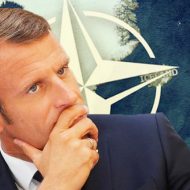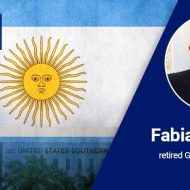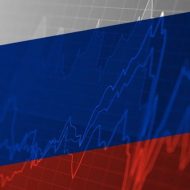By Tülin Uygur, reporting from Stockholm / Sweden
Different evaluations can be made regarding Türkiye’s 14th and 28th May election results, but the most important point is the high voter turnout, with 88.92% in the first round and 84.15% in the second. Erdoğan will continue to be decisive in Türkiye’s domestic and foreign relations for another five years.
During the election process and before, a unique situation unfolded in the US and Europe. Many European leaders, party leaders, and even the US President Biden personally made statements that “Erdoğan should go”. This might lead one to think that they do not view Türkiye differently from Iraq, Syria, and Libya, where they previously used a similar discourse: ”Saddam should go,” “Assad should go,” and “Gaddafi should go.”
Can we attribute the stance of the US and Western leaders solely to their opposition to “Erdoğan”? Clues for the answer can be found in the problems Türkiye has faced with two significant institutions in its economic, military, and political relations with the US and the West: the current EU (formerly known as the European Economic Community) and NATO.
Türkiye applied for membership to the then European Economic Community in 1959 and signed the Ankara Agreement in 1963. However, since then, Türkiye has been kept waiting at Europe’s doorstep for various reasons.
As for NATO, Türkiye became member in 1952, 3 years before Germany and 3 years after the alliance’s establishment with 12 members. Türkiye has the second-largest army within NATO and was considered as a “good ally and friend” until recently.
However, interestingly, Türkiye has never been given the position of NATO Secretary General. Moreover, in 2002, the US military invited all NATO members except Türkiye in the “Millennium Challenge 2002” exercise coinciding with the 79th anniversary of the Treaty of Lausanne.[1]
In 2006, in a briefing at the NATO headquarters in Rome, an American colonel presented a map of the “Greater Middle East Project” that involved redrawing the borders of Türkiye and aiming to divide the country. This map, which depicted 18 provinces of Türkiye as “Kurdistan” caused a scandal and Turkish officers present at the briefing left the meeting. The then Chief of the General Staff of the US had a talk with his Turkish counterpart and assured that it was a “mistake.”[2]
Even these two examples alone demonstrate that US, which repeatedly declares itself as the “owner” of NATO, has a stance against Türkiye not limited to “Erdoğan.” Furthermore, by examining various historical cases, like the “1964 Johnson Letter” sent to the İnönü government, we can see the anti-Türkiye attitudes of the US and Europe.[3]
Sweden-Türkiye relations within the context of the approach to terrorism
One can see that Sweden’s stance towards Türkiye is not different from that of the EU and the US. I have written the details of Sweden’s hurry-scurry NATO application without a referendum.[4] I have also in detail explained the extensive support provided by the Social Democratic government at the time to the YPG/PYD and the compromises they made to secure a majority vote in parliament.[5]
The amendments to the Swedish penal code followed protests by Muslim and migrant youth against Quran burnings in meetings in late 2021 and Easter 2022. Heavy penalties were given to young people who were scapegoated. In contrast, the provocateur Paludan – who initiated Quran burning actions and caused turning public spaces into battlefields, committed the crime of “insulting the sacred of others” which is considered a crime under Swedish law – took shelter behind the cliché of “freedom of expression” and faced no legal consequences.
Despite the ban of Sweden police on burning the Quran in certain areas due to the potential for “social unrest and incitement”, Paludan announced that he would resume his activities after having taken approval from the court. The police have stated they would review their approach in accordance with the court’s decision.[6] In other words, Paludan will continue to burn the Quran under police supervision.
In Sweden, the agency named the “Authority for Combating Violent Extremism” does not have any publications specifically addressing terrorist organizations like the PKK and Fethullah Gülen Terrorist Organization (FETÖ). However, they have published materials on the activities of the “Islamic State (IS)” in Somalia and Khorasan, as well as how to protect young people in Sweden from its influence.
Further, this terrorism law does not apply to the PKK, which is declared a terrorist organization by Türkiye and is on the list of terrorist organizations of both the US and the EU, but is continuously supported underhandedly or overtly.[7] While the Swedish Security Service (SÄPO) under the government order, states that the PKK does not pose a problem in Sweden, despite the demonstrations with PKK flags and chants like “Saddam equals Erdoğan,” “dictator Erdoğan,” and “killer Erdoğan,” Prime Minister Ulf Kristersson, probably because of Türkiye’s stance in NATO negotiations, has stated that the PKK is engaged in large-scale illegal extortion activities.[8] In recent days, an unprecedented trial has begun: an individual is being prosecuted for alleged links to the PKK’s top leadership and involvement in extortion activities.[9]
Looking at Türkiye through the eyes of the US and Kurdish separatists
During the election process in Türkiye, we saw that articles were published almost every day against Erdoğan and “Türkiye experts” appeared in the media and various seminars. Just like the Swedish media discussed Sweden’s NATO application through “Türkiye and the Kurds,” they analyzed the Turkish elections with the perspective of separatist Kurdish organizations and with hate towards Erdoğan.
As Türkiye reacted to the demonstrations featuring PKK flags and Abdullah Öcalan posters, as well as the hanging of a puppet resembling Erdoğan by its feet, the press claimed that Erdoğan was also interfering with “freedom of expression” in Sweden. The government, caught between Erdoğan’s demands and provocative actions by the PKK, timidly sought refuge behind the veil of “freedom of expression”.
The media highlighted the views that characterized Erdoğan as an “Islamist and dictator” with unlimited power, emphasizing his interference in Sweden’s affairs. They also portrayed Türkiye as using Sweden’s possible NATO membership as a manipulation tool.
While the ones who voice the opinion that “Sweden must join NATO” opposed the demonstrations of the PKK and said these are sabotaging NATO membership process. Even those who did not want Sweden to join NATO found the actions distasteful, but argued these should be seen within the scope of “freedom of expression.”
The coalition government was also divided on the demonstrations of the PKK. Tobias Billström, the Foreign Minister from the Moderate Party (Moderata samlingspartiet), described the hanging of the puppet depicting Erdoğan by its feet in front of the Stockholm City Hall as a “shameless act.” On the other hand, Johan Pehrson, the leader of the Liberal Party and the Minister for Employment and Integration, said “Yes, it is an unpleasant act, but we have freedom of expression in our country. Just as much as I defend Paludan’s right to express his views through actions, I also defend the right to protest against Erdoğan.”
The stances of other parties are no different. For instance, the leader of the Left Party (Vänsterpartiet), Nooshi Dadgostar, openly published videos urging support for the PKK-affiliated Green Left Party in Türkiye and sent greetings in Kurdish. Furthermore, members of the Left Party participated in PKK demonstrations and posed for photographs with PKK flags.
In short, Sweden views Türkiye through the eyes of the “US and separatist Kurdish organization.” Only opinions in line with “these eyes” are published in the Swedish media. Human rights, LGBTI rights and femicides are becoming tools to insult both Türkiye and Erdoğan.
And they appeared to be wrong. The “unwanted Erdoğan” they thought the Turkish people wouldn’t choose has been re-elected as the president.
Now, what will happen? How will diplomatic relations proceed? How will they look at each other as if nothing has been said or written? How will the “Türkiye-Sweden-NATO crisis” be overcome?
Negotiation strategies
Erdoğan’s victory in the elections revealed the necessity of playing the game with him.
We should note that the confusion created regarding the number of terrorists Türkiye demands to be extradited for the lifting of Türkiye’s NATO veto caused a negative perception of Türkiye among the Swedish public since the start of the negotiations. Furthermore, the fact that the majority of these individuals are Swedish citizens is another problem. Sweden respects the right of its immigrant-origin citizens who have sought asylum and fulfilled the requirements for citizenship after a certain period to continue their presence in their new country regardless of their past.[10]
Moreover, there is a significant bureaucratic “trauma” in Sweden regarding the issue of “terrorist extradition.” Two Egyptian terrorism suspects were abducted, drugged, handcuffed, and dressed in orange jumpsuits at Stockholm’s Bromma airport in 2001 with the knowledge and permission of the government, under pressure from the US. They were then handed over to the CIA and taken to Egypt on a CIA plane, all with the approval and decision of then-Foreign Minister Anna Lindh.[11]
After such a trauma, it is difficult to imagine that Sweden would extradite the terrorists on Türkiye’s list. Moreover, when the US openly favors the PKK and FETÖ supporters and wants Erdoğan to be removed from the presidency, it is almost impossible.
Realizable demands such as preventing regular extortion of businesses by terrorist organizations, stopping the Swedish state’s financial aid to terrorist organizations and their affiliates in Sweden, Türkiye and northern Syria, and banning demonstrations with PKK flags and Öcalan banners could have strengthened Türkiye’s hand.
Blocking Sweden’s NATO membership with demands that seem impossible to meet would escalate the tension in NATO-Türkiye relations to a new level. Instead of escalating the tension, Türkiye’s giving up its demands on Sweden would be considered as “backing down”. In some circles argue that Sweden would support Türkiye’s EU membership or recognize the Turkish State of Northern Cyprus. However, Sweden will not have a different stance from the US on these issues.
Sweden’s historical Russophobia
An important factor in the Sweden-NATO relationship is the Swedes’ historical Russophobia.[12] This fear led Sweden to abandon its 200-year-old principle of “non-alignment in peace and neutrality in war”. This principle was adopted in 1814 to avoid war with Russia. Now Magdalena Andersson, the leader of the main opposition party, and Prime Minister Ulf Kristersson and their coalition partners are seeking NATO membership as a safe harbor.
As soon as Magdalena Andersson made a hasty application to NATO, she went to the US, meet Joe Biden and received his full support. When the Patriot missiles arrived in Sweden, she posed for a photo with the minister of defense wearing military uniforms. Andersson, in announcing his party’s new security strategy, again reinforced the public’s fear of Russia by stating that “Russia will soon pose a threat to Sweden”.[13] However, the current Swedish Ministry of Defense considers the risk of an armed attack against Sweden as very low. The Ministry states that there is no cause for concern along Sweden’s borders, but that the risk of an armed attack cannot be ruled out, that various risks have increased due to misunderstandings between Russia and the West, and that it is difficult to predict how these events will unfold near Sweden.[14]
Sweden, which has had no problem with Türkiye being kept waiting at the EU door for 64 years, does not want to wait at the NATO door. Sweden, together with the other Nordic countries, especially Finland, wants to have a say in NATO’s secret meetings from the very beginning which are only open to members to plan the North’s defense.
With the support of Stoltenberg and all NATO countries except Hungary and Türkiye, the government is hopeful for the July 11-12 NATO meeting. In fact, Sweden-NATO relations have been developing steadily since 1994. The government now wants to take them to the level of membership and also to find new markets for its arms industry. For example, it wants the Swedish Gripen fighter jet to take part in air patrols in the Baltic.[15]
As for the Swedish public’s attitude… According to a study at the University of Gothenburg in March 2023, there has been a rapid change in public opposition towards NATO since the war in Ukraine and now only 52% of the population trusts NATO.[16]
Of course, apart from all these developments and discussions in front of our eyes, one should keep in mind that negotiations behind closed doors are ongoing as well.
All eyes are on NATO’s the Vilnius meeting on July 11-12.
[1] https://www.aydinlik.com.tr/haber/millenium-challenge-2002-tum-yonleriyle-abdnin-turkiyeyi-isgal-plani-367736
[2] https://www.haberturk.com/gundem/haber/1465-bolunmus-turkiye-haritasi-skandali
[3] News in the media after the 1964 Johnson Letter Johnson: https://dergipark.org.tr/en/download/article-file/985610
[4] https://uwidata.com/25125-the-historic-collapse-that-came-with-swedens-application-for-nato-membership/
[5] https://uwidata.com/25564-how-a-pro-pkk-pyd-member-of-parliament-determined-the-swedish-government/
[6] https://www.ttela.se/nyheter/sverige/thornberg-vi-ska-ratta-oss-efter-svensk-lag.186b3ef8-fcbd-584c-81a4-d32738d0b79f
[7] https://www.aydinlik.com.tr/haber/isvecin-yeni-teror-yasasi-nato-kilidini-acabilir-mi-321827
[8] https://www.aftonbladet.se/nyheter/a/0QVl70/kristersson-stor-forstaelse-for-turkiet ,
[9] https://www.aftonbladet.se/nyheter/a/xgdmqp/nekar-till-pengainsamling-for-pkk
[10] Recent street protests, gangs, etc. have led to discussions about changing the conditions for “citizenship” and “naturalization” in Sweden.
[11] It has been revealed that the two men were handed over to the CIA with the knowledge of the government. Prime Minister Göran Persson said that the US threatened to impose a trade embargo on the EU if Sweden did not deport the two Egyptians. One of the two Egyptians was released after two years without trial, the other was sentenced to 25 years, later reduced to 15 years. Sweden paid compensation to both Egyptians. One of them received a residence permit because he has a wife and child in Sweden.
https://sv.wikipedia.org/wiki/Egyptenavvisningarna, https://www.washingtonpost.com/wp-dyn/articles/A11976-2004Jul24.html
[12] https://www.aydinlik.com.tr/haber/isvecin-yeni-teror-yasasi-nato-kilidini-acabilir-mi-321827
[13] https://www.svd.se/a/JQGkeX/magdalena-andersson-om-nato-och-sveriges-forsvar-mot-ryssland
[14] https://www.forsvarsmakten.se/sv/var-verksamhet/forsvarsmakten-i-sverige/nato-i-fokus/
[15] https://www.tn.se/inrikes/29804/svenska-forsvaret-ser-risker-med-utdraget-natobesked/
[16] https://www.gu.se/sites/default/files/2023-05/Jordskred%20i%20svensk%20nato-opinion%20-%20Bjereld%20och%20Oscarsson%20-%20F%C3%B6rhandspublicering.pdf









In my opinion the true reason of the way to membership of both Sweden and Finland is one: the defense industry is BAE systems. The war in Ukraine is just a smokescreen to sell more weapons with NATO membership